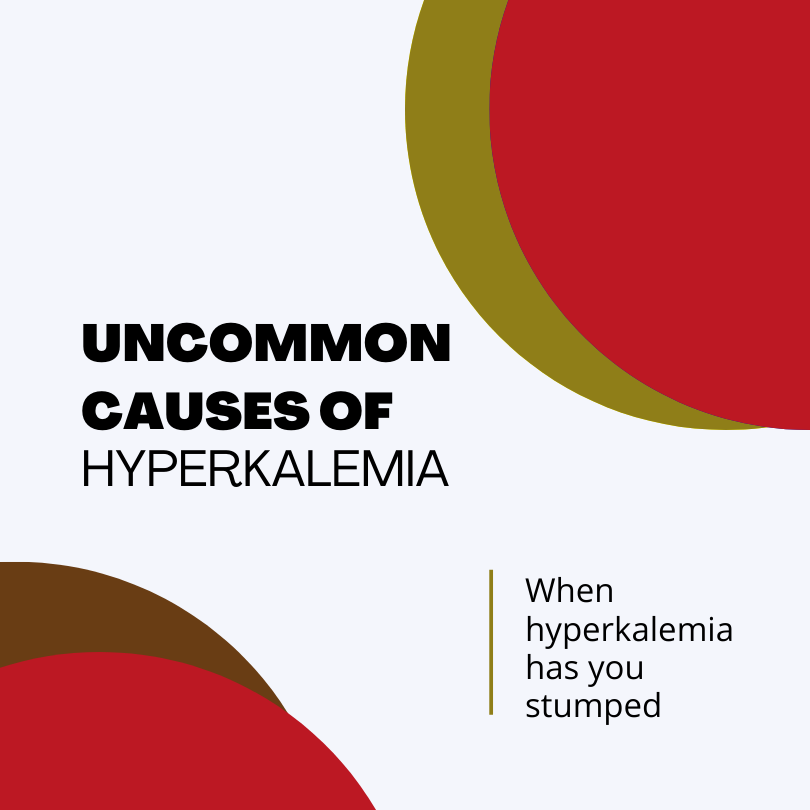There are so many reasons someone may experience hyperkalemia and I cover most of the common culprits in my Hyperkalemia Assessment Guides. But for those of us who work with hyperkalemia sometimes even after checking all these boxes, we come up with nothing. So what could be causing these unexplained instances of hyperkalemia?
So this post will serve as an ongoing landing spot for all the uncommon hyperkalemia causes I come across.
Platelets
Impact: High platelets can lead to pseudohyperkalemia
Key Assessment: Looks for platelets above 500
Pathophysiology: Elevated platelets lead to clotting and release of potassium from cells. This leads to a falsely elevated serum potassium reading.
What to do about it: Can request a plasma or a whole blood potassium as these two tests will be less prone to clotting-related lab error.
Full Blog Post: Unexplained hyperkalemia? Have you checked out their platelets?

Dietary Sodium Intake
Impact: Very low sodium diets can lead to hyperkalemia
Key Assessment: Diet recalls for inappropriately low sodium intake (e.g. less than 500mg per day)
Pathophysiology: Extremely low sodium delivery through the kidney will cause the kidney to conserve/stop urinary sodium excretion and lead to reduced urinary potassium excretion
What to do about it: Liberalize dietary sodium intake
Full Blog Post: How does sodium intake relate to hyperkalemia?

Low Hemoglobin
Impact: Low hemoglobin is associated with hyperkalemia
Key Assessment: Look for low hemoglobin levels or significant changes from your patient’s baseline value or reports of a GI bleed, Can also co-occur with hyponatremia
Pathophysiology: Sodium-potassium pumps on red blood cells impacting potassium and sodium balance
What to do about it: There are no nutrition interventions for this. Medical management is required.
Full Blog Post: What does hyperkalemia, low hemoglobin and artificial intelligence have in common?




